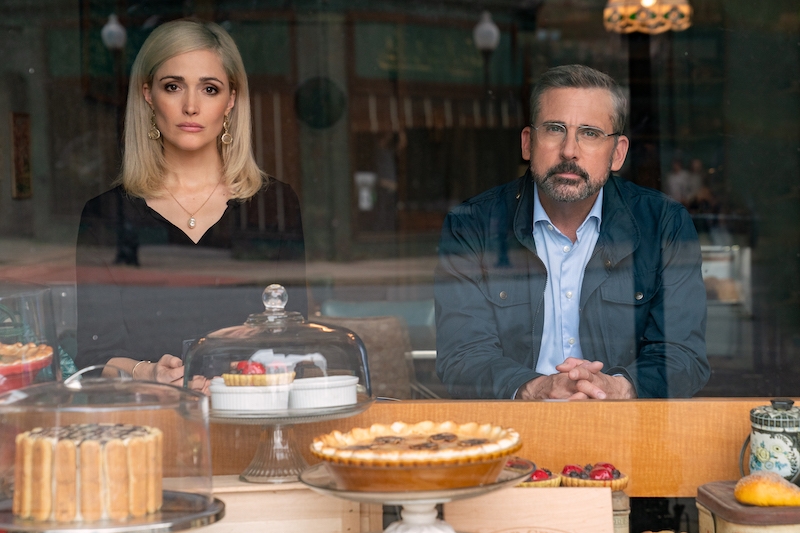
Several times in the past four years, I’ve thought to myself, “I wish Jon Stewart were still on the air.” Nothing against Trevor Noah, who has proven to be a more than able successor (and, arguably a better host for this moment in time). But it was Stewart who started this format, and his brand of snark, moral clarity, menschiness, and righteous anger is something we all could use more of these days.
Then again, if Stewart’s new film, Irresistible, is any indication of the kind of content he would’ve been producing during the Trump years, all I can say is: Whew, dodged a bullet.
The whole point of the film, if I’m following it correctly, is that money in politics is bad and that our Red State/Blue State narrative is driven by the press and political strategists and serves to divide us further. Whoa . . . mind blown.
In that sense, the film has something in common with Adam McKay’s Vice, which is also bad: It thinks we’re all simpletons when it comes to the inner workings of politics and that we need to have it explained to us in the most condescending way possible.
In a curious move, Stewart doesn’t focus on a Republican political strategist, as one might expect, but a Democratic one, namely Gary Zimmer, played by longtime Stewart collaborator Steve Carell.
Here’s the setup: Fresh off his losing work on the Hillary Clinton campaign, a bummed out Gary sees a YouTube video of a progressive-minded Marine vet, Jack Hastings (Chris Cooper), lecturing his mayor about immigrant’s rights at a town hall in Deerlaken, Wisconsin. Gary sees Jack as the Great Democratic Hope, a farmer, no less, with small town values, who can talk about Democratic policies while driving a pick-up truck and wielding a gun. So he recruits him to run for mayor.
But if, say, Tucker Carlson had written the script and not Stewart, he couldn’t have done a better job of parodying a Democratic strategist.
Gary thinks of himself as a good guy, but mostly he likes to win. He thinks all people can, and should, be manipulated. He assumes the folks who live in small towns are idiots who don’t know what’s good for them (but he’s here to tell them). He tries to affect being a regular guy, ordering a “burger and a Bud” when he rolls into Deerlaken (he doesn’t know that the Bud is a screw top). He’s a city slicker snob, who refers to green beans as haricot verts, is afraid of dogs, and freaks out when he doesn’t have WiFi.
Yes, there’s a Republican strategist, too, Faith Brewster (Rose Byrne), a gorgeous killer in stiletto heels and a power suit, and in a plot point ripped from a thousand rom-coms before it, she and Gary can’t decide if they want to murder each other or rip each other’s clothes off.
But Faith is a vague and stereotypical character, played amusingly by the ever-welcome Byrne, of course. Gary, on the other hand is the subject of the film’s closest observation—and scorn. He even hits on Jack’s beautiful 28-year-old daughter, Diana (Mackenzie Davis), not realizing that he’s making a fool of himself. Again and again, Gary stumbles because he’s too high on his own supply of superiority to see what’s in front of him.
There was a period, right after Trump was elected, when The New York Times did story after story about salt-of-the-earth heartland Trump voters who were decent people who simply felt betrayed or forgotten by Washington. One such story was fine, but they kept coming, again and again, usually set at homey diners—and they seemed to willfully ignore some of the more disturbing aspects of Trump’s appeal. Irresistible sort of seems like the cinematic version of those stories. (Why it’s called Irresistible—a title created in a focus group if ever I’ve heard one—is anyone’s guess.) I thought Stewart was more interesting and sophisticated than that. But maybe, much like Gary, he just thinks we’re the ones lacking nuance.
